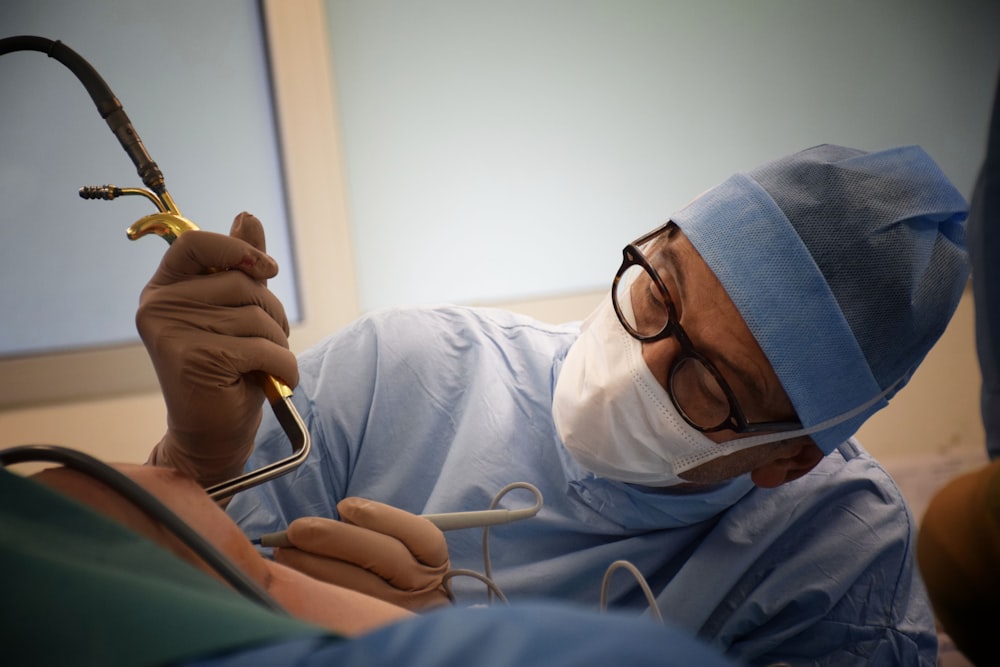Mar 21
2023
4 Bariatric Innovations That Are Transforming the Weight Loss Industry
Healthcare is continually evolving, with bariatric innovations transforming the weight loss industry. From the many artificial intelligence applications to the latest adaptive technologies, bariatrics constantly improves and grows while enhancing the surgery’s effectiveness. This article outlines four bariatric innovations that are transforming the weight loss industry.
1. Robotic procedures
Surgical robots are a game-changer and an exciting bariatric innovation. They arm surgeons with extraordinary precision, expanding and boosting their natural abilities to constantly enhance bariatric surgical procedures’ efficiency and accuracy, including gastric sleeve surgery. Surgical robots provide enhanced ergonomics and safety that can help address the growing physician burnout in the healthcare industry. This can be rewarding to the surgical field’s sustainability.
Patients are assured of accurate and safe weight loss through bariatric robotic systems. The systems feature 3D views and high-magnification cameras to ensure surgeons have an excellent range of motion. This increases their precision and allows them more control during the procedures, reducing complication risks after and during the surgery.
Unlike the traditional laparoscopic weight loss procedure, bariatric robotic surgery has more possible benefits, including quicker recovery, shortening your time in hospital beds, lowering infection rates, minimizing pain and scarring, and lowering attached follow-up risk after surgery. Since bariatric robotic procedures are less invasive, you may get back to your routine much sooner.
2. Artificial intelligence
Artificial intelligence is at the top of various technological advancements in the healthcare sector. The algorithms that help computers learn and conduct cognitive functions are transforming the world of bariatrics. Here are the opportunities AI unlocks in bariatrics:
- Artificial neural networks assess and forecast surgical risk, arming surgeons with good decision-making details and administrators with information for informing initiatives, such as bundled payments
- Machine learning lets computers learn and foretell depending on datasets, enabling clinicians to foresee specific outcomes and look for unfamiliar patterns. This efficiently and quickly offers surgeons insights to inform surgical teams to expand bariatric innovation while fueling better results
- Computer vision offers real-time improvement to surgical imagery. Its study of video in laparoscopic surgery automatically identifies a sleeve gastrectomy’s steps with high accuracy and helps determine complications and missing stages to help surgeons
- Natural language processing helps computers recognize human language plus its meaning. It can be used in automated post-operative care for efficient complication identification
3. Adaptive and interactive technology
Patient engagement, an essential element in each bariatric journey, has improved. mHealth technology’s focus has so far been on text message-based interventions. However, innovations are unraveling real-time sensing potential to develop adaptive interventions. These interventions utilize wearable sensors to wirelessly connect to smartphones, computers, and smartwatches to track patient behavior constantly. The sensor can monitor diet, physical activity, sleep, sedentary behavior, social context, and behavior.
4. Acceptance-based behavioral procedures
Weight gain post-bariatric surgery is common. This results in the loss of the rewards the surgery helps patients gain, causing dangerous or adverse health impacts. Acceptance-based behavioral treatments provide patients with special psychological skills for boosting lasting exercise and dietary program adherence. These treatments help patients learn to make mindful decisions instead of automatic choices caused by external signals. They also help them develop a desire to face discomfort instead of making the experience more pleasurable.
Endnote
Bariatric innovations enable the obese care industry to enhance health outcomes and minimize costs while continuously offering better services to patients. Familiarize yourself with these bariatric innovations that are transforming the weight loss industry.
